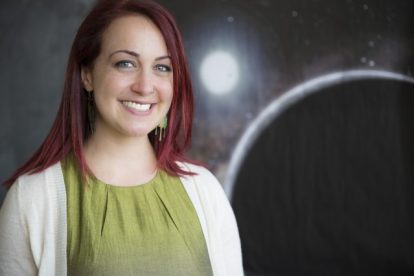
Contact Information
Overview
I’m originally from the San Francisco Bay Area. I earned my undergraduate degree in Astrophysics at UC Berkeley in 2007, before attending Harvard University for my PhD. I discovered a love of exoplanet research there, and was advised by Dave Charbonneau. I earned my doctorate in 2012, and went next to the University of Washington as a NASA Carl Sagan Postdoctoral Fellowship. I was then a Torres Fellow for Exoplanetary Science at MIT from 2015 until 2019, when I came to the University of Florida to be an assistant professor.
Educational Background
- Ph.D., Harvard, 2012
- B.Sc., UC Berkeley, 2007
Research
I am interested broadly in observational studies of exoplanets. I used to focus upon individual characterization of new planets, but my perspective has grown wider as the number of known exoplanets has grown to the thousands. My research program centers now upon statistical studies of exoplanet populations, with a particular focus upon planetary systems orbiting small stars. We know now that these types of stars, most numerous themselves in the Milky Way, are also the likeliest to host small planets. I aim to answer whether there exists a “typical” planetary system around these types of stars, and whether that blueprint is amenable to the evolution of life. To that end, I’ve led studies and advised students to address: the diversity of planetary systems orbiting M dwarfs, links between late-stage planet formation and the observed yield of the Kepler mission, what NASA’s TESS mission can hope to detect orbiting nearby small stars, on what timescales these planetary systems are dynamically stable, and whether these planets typically host large, extended atmospheres. I am also involved in the MINERVA-Australis project, an observatory in Australia built to gather both radial velocity and photometric observations of new exoplanet systems (with a particular eye toward systems recently uncovered by TESS).